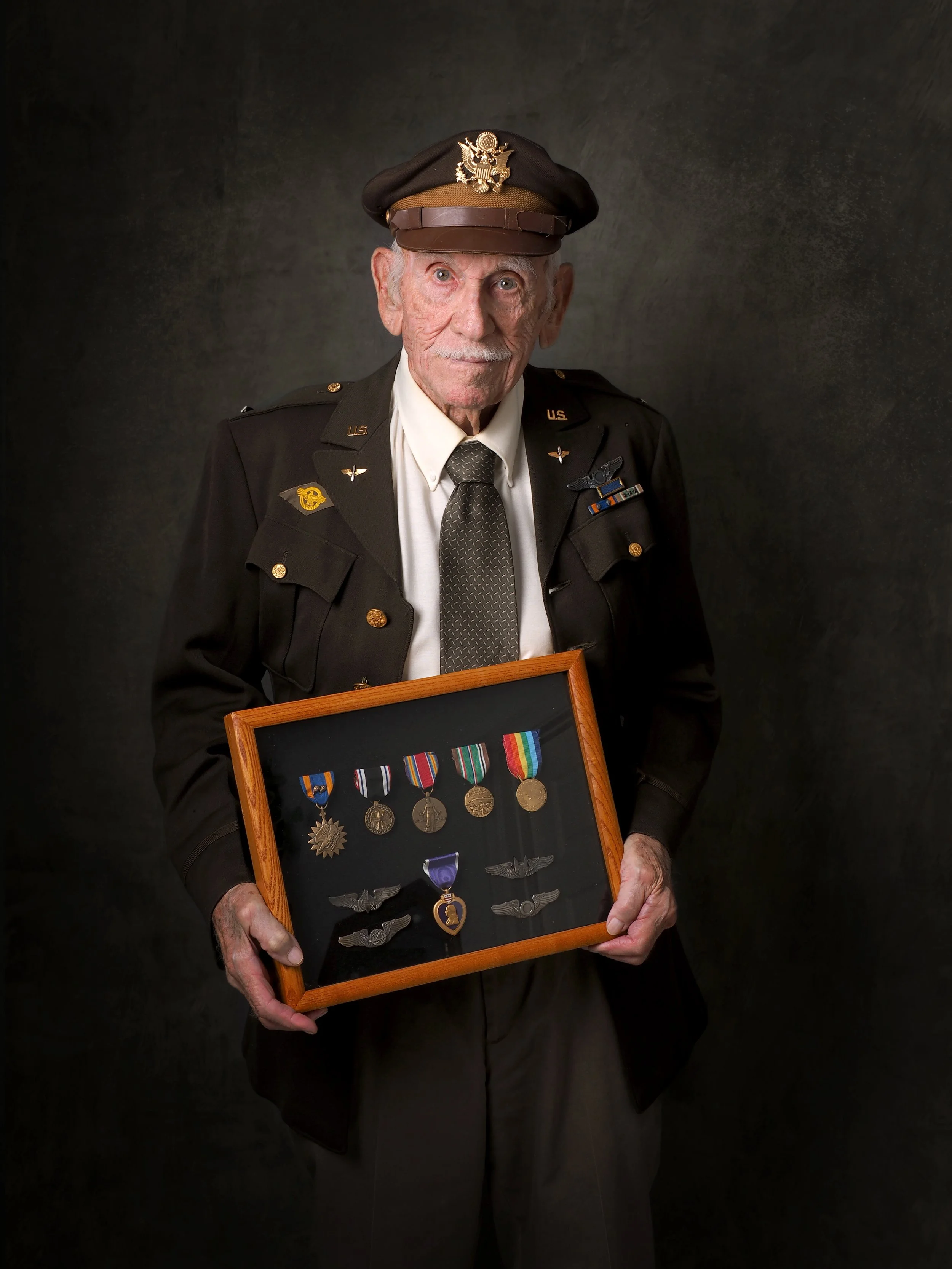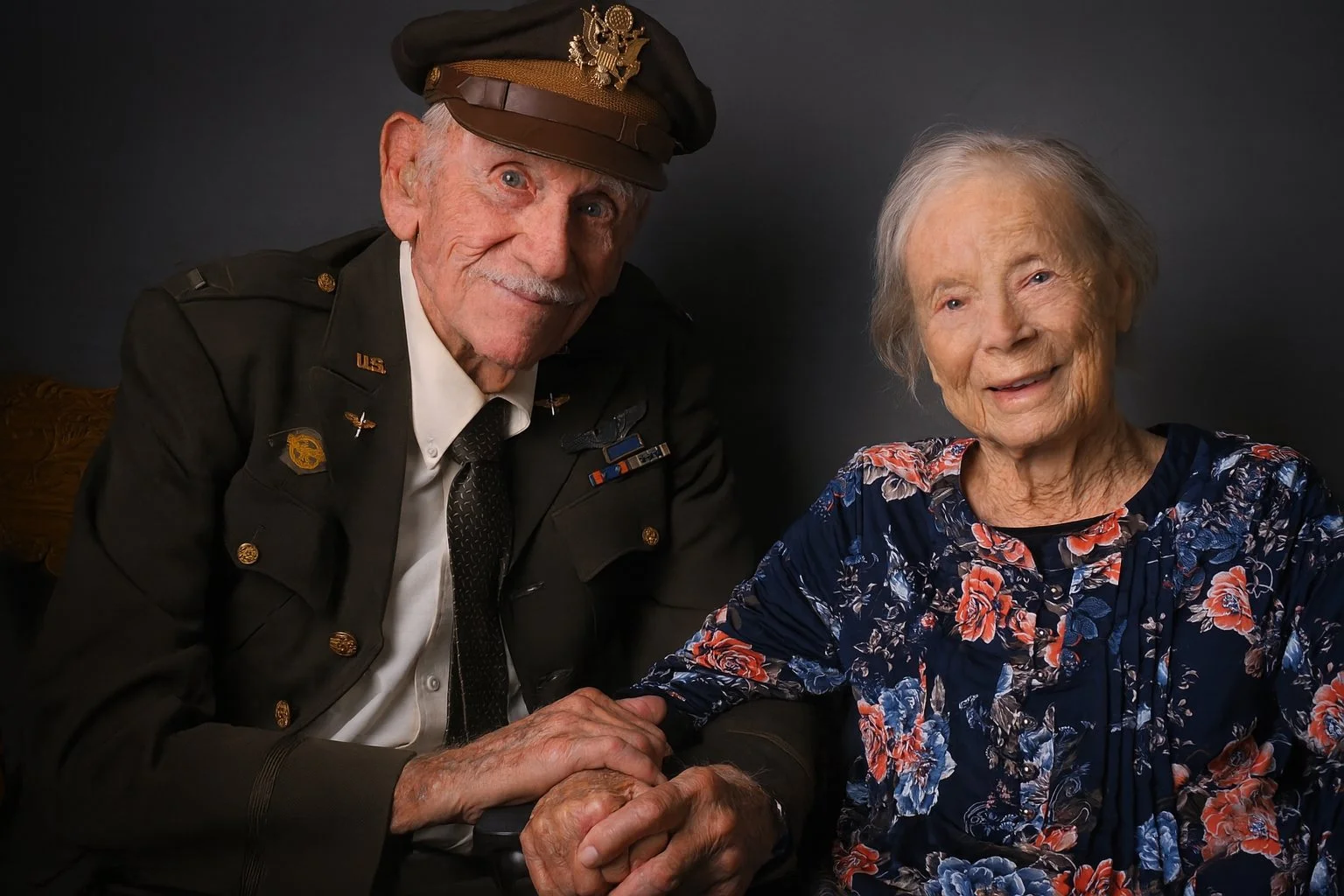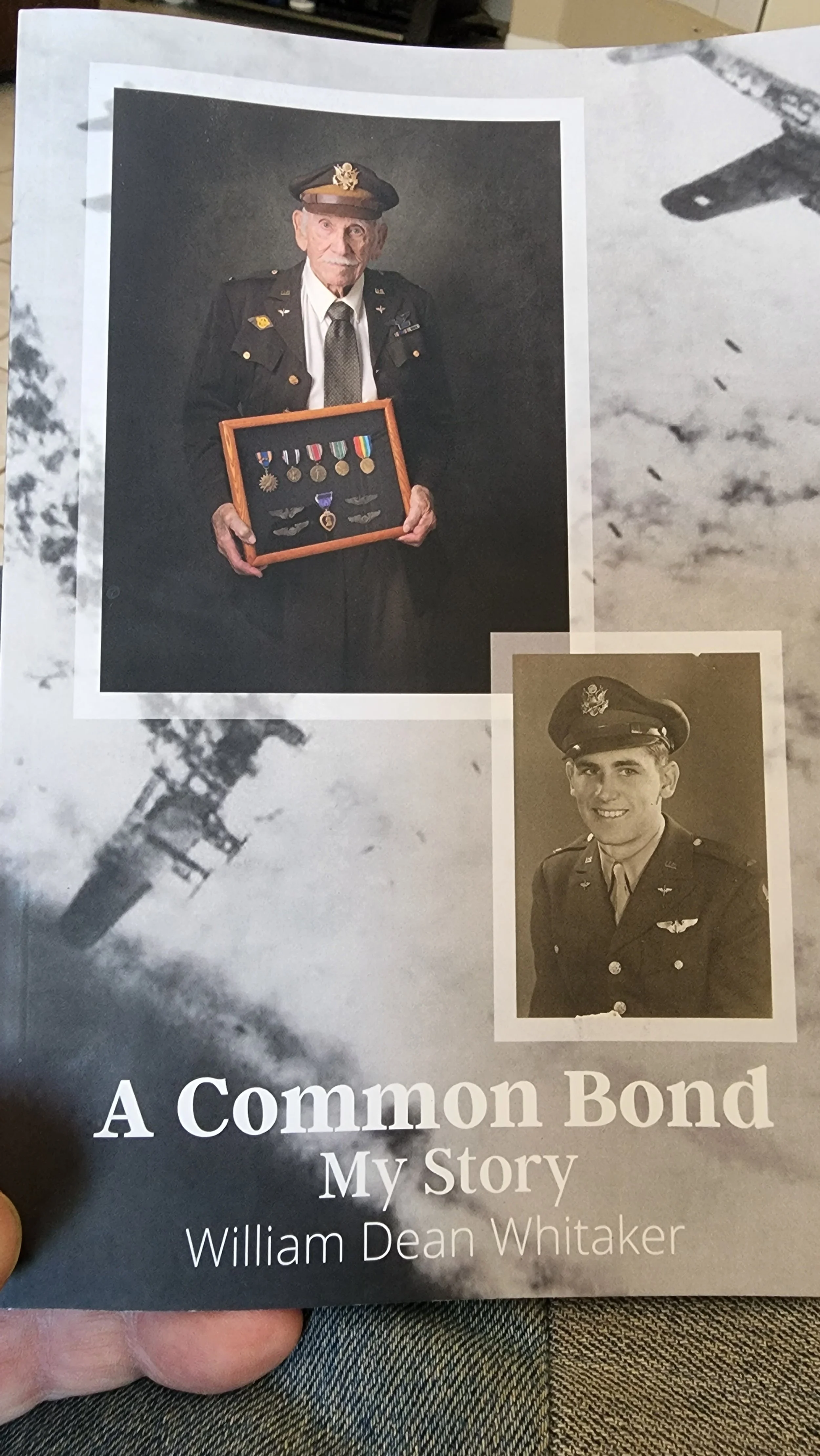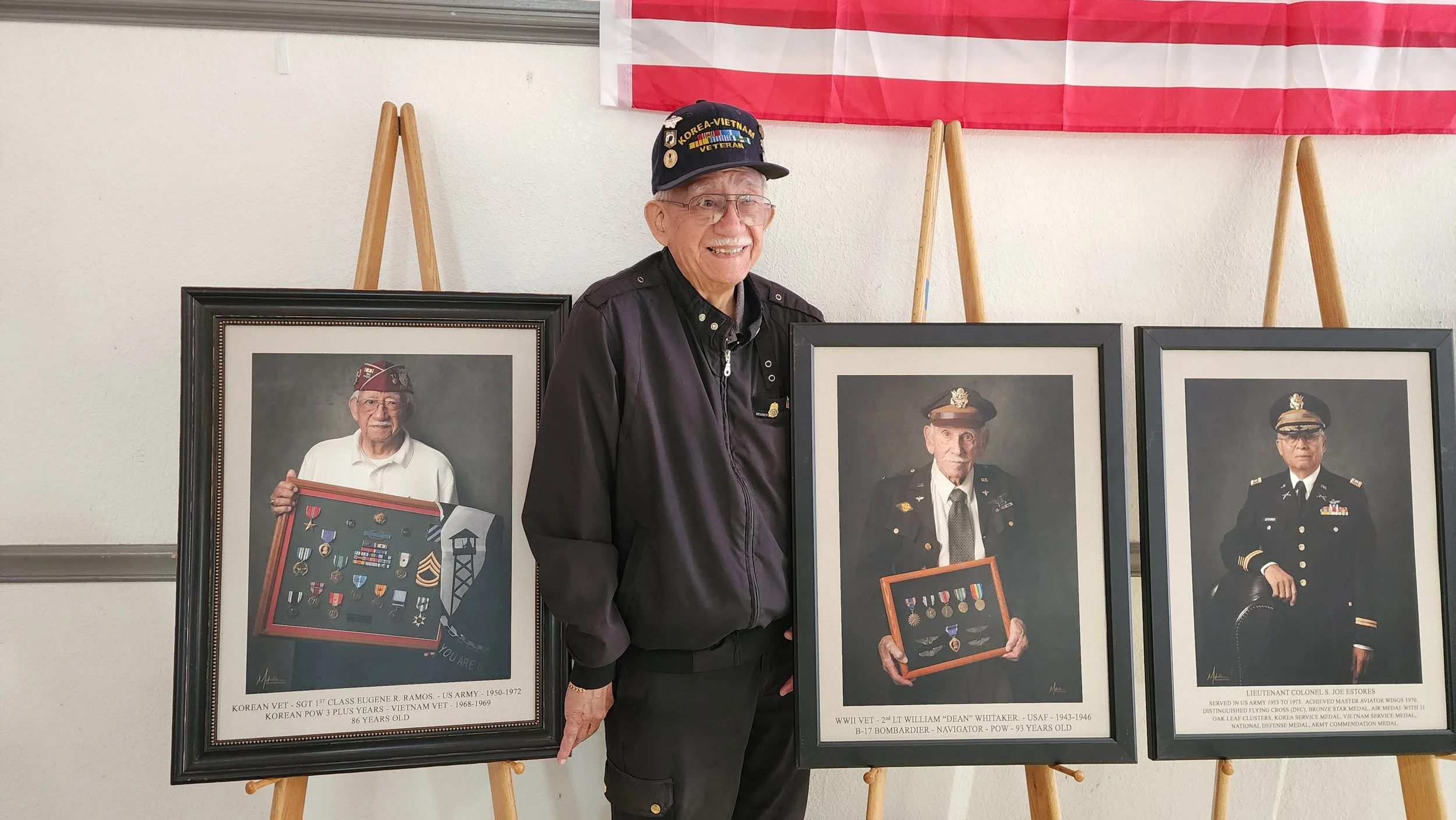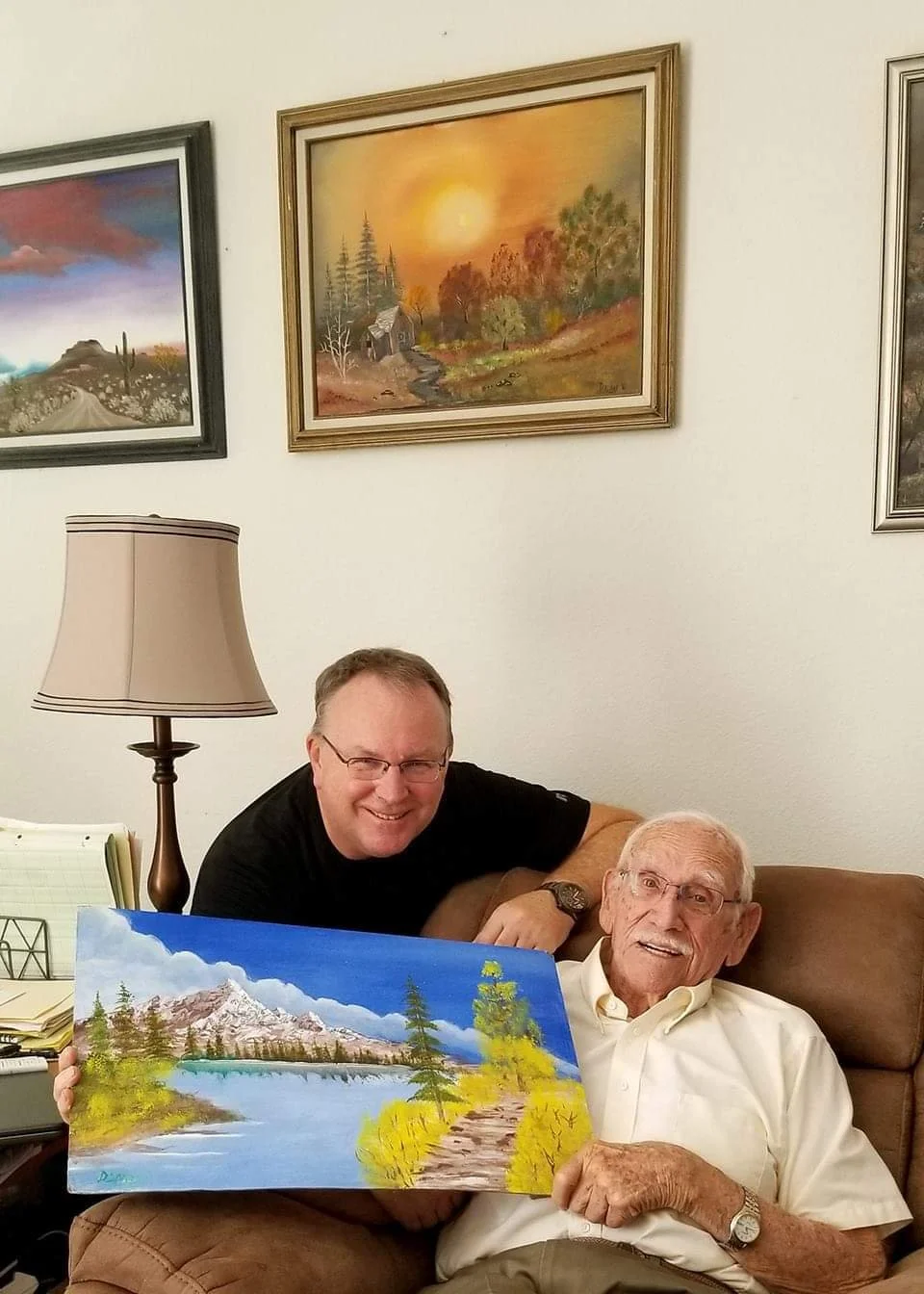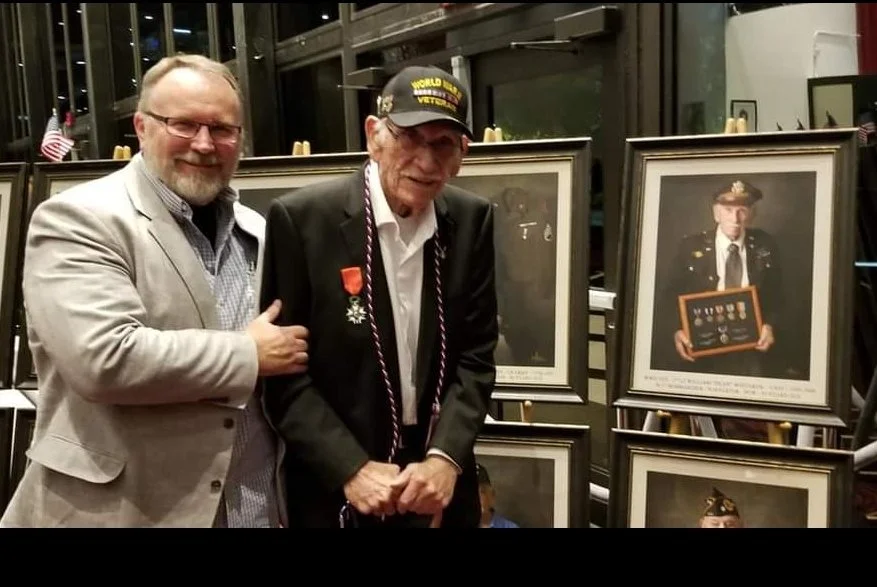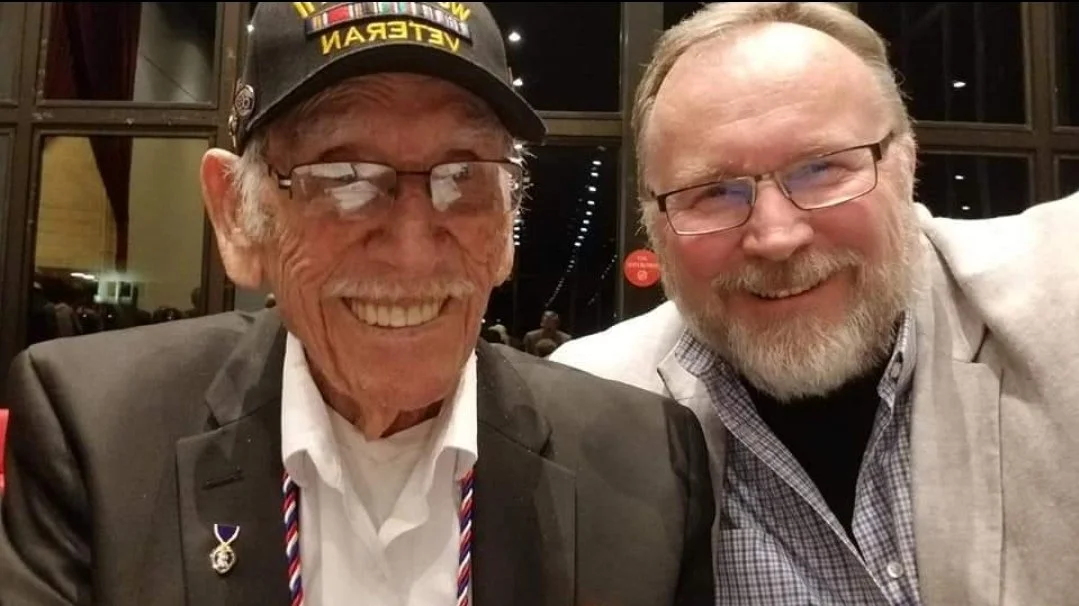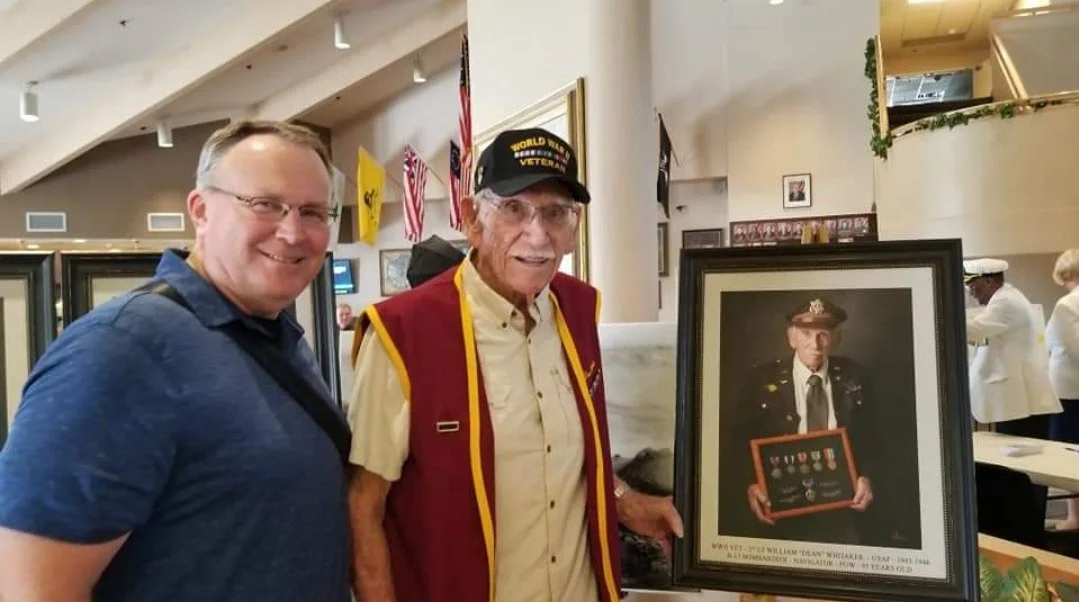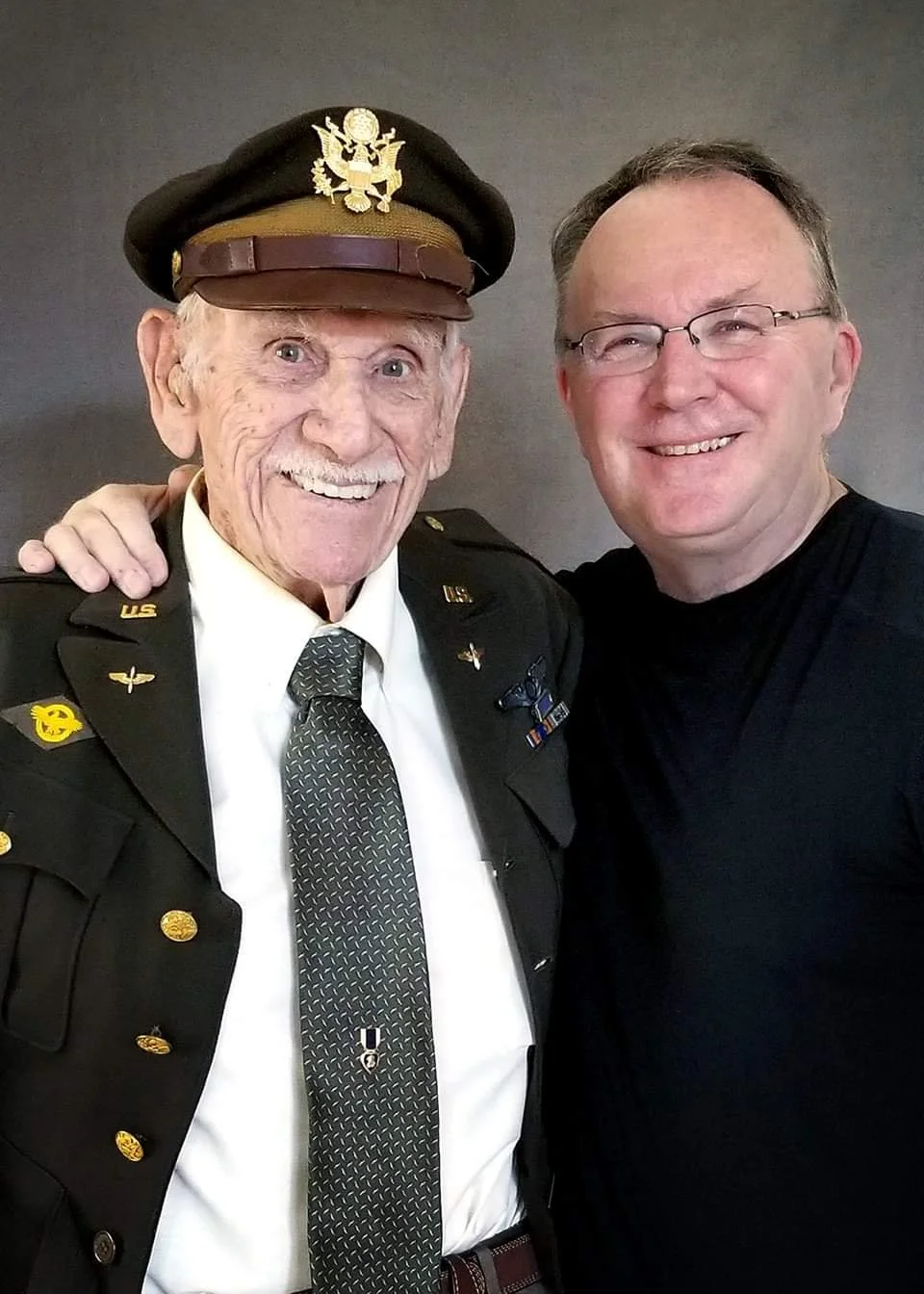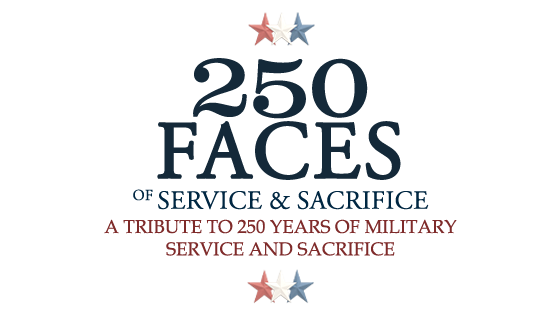WWII Veteran William Dean Whitaker: A Story of Duty, Survival, and Devotion
William Dean Whitaker was born on March 4, 1925, at his family’s home in East Los Angeles, California. He was the son of David Whitaker, a construction superintendent who would later help build Nellis Air Force Base in Nevada, and Dora Whitaker, a devoted homemaker. In 1944, just before Dean’s enlistment, tragedy struck the family when his father passed away. Dora, now a widowed mother, stepped into the workforce, finding employment at Cole’s Clothing Store—an establishment that had transitioned into a parachute manufacturer during the war. That seemingly minor detail would later take on a poignant twist in Dean’s story.
After graduating from Mark Keppel High School in Alhambra, California, Dean was keenly aware of the global conflict raging in both Europe and the Pacific. Compelled by a strong sense of duty, he and three of his high school friends made their way to the Army recruiting office in Santa Ana. Dean enlisted in the U.S. Army Air Corps in 1943 with dreams of becoming a bombardier—a career path that offered a relatively quick transition to becoming a Second Lieutenant.
Initially assigned to the Aviation Cadet Program in Victorville, California, Dean was rerouted due to his last name falling later in the alphabet. While awaiting his cadet training, he was sent instead to Gunnery School in Kingman, Arizona. During a competitive training exercise between the Kingman and Las Vegas gunnery schools, Dean demonstrated a natural marksmanship talent, taking first place and receiving a silver ring as the prize—an artifact he still treasures.
Dean eventually made it to Victorville and graduated from the Aviation Cadet Program in March 1944. He was then sent to Rapid City, South Dakota, to join up with a flight crew before deploying overseas in July of that year. Assigned to the 398th Bomb Group, 603rd Squadron of the Eighth Air Force, Dean was stationed at Daws Hill in Buckinghamshire, England, for final preparations.
His first combat mission came during the early days of the Battle of the Bulge. Flying a B-17 Flying Fortress high above France, his aircraft came under intense enemy fire. The entire nose of the aircraft—where Dean was stationed—was shot out. He suffered facial injuries from flying debris and fiberglass, yet continued the mission. Sixty years later, in 2004, he was awarded the Purple Heart for his injuries sustained during that harrowing flight.
Dean flew 18 more combat missions before his 20th—and final—mission on November 2, 1944, over Merseburg, Germany. The target: a key synthetic fuel plant crucial to Hitler’s war effort. During the mission, Dean’s aircraft was attacked by the Luftwaffe and severely damaged. Several crew members were tragically killed during their attempt to parachute from the burning plane.
Dean survived, though he parachuted directly into enemy territory—landing in or near a German POW camp. He was captured and imprisoned for the next seven months at Stalag Luft III, the same camp made famous by the film The Great Escape. Dean would often wonder if the parachute that saved his life had been one of the many sewn by his mother at Cole’s during the war.
After Germany’s surrender, Dean and his fellow prisoners were liberated. While recovering in a military hospital, General George S. Patton visited to check on his wounded son-in-law. During that visit, Patton asked Dean how he was doing. Dean, ever composed, replied, “Great, now that you’re here, sir.” It’s a moment he still fondly remembers.
Finally returning home to Los Angeles, Dean reunited with his family. Dora had held the family together through wartime hardship, raising five children on her own. All of her sons would go on to serve in the military.
Dean, a faithful member of The Church of Jesus Christ of Latter-day Saints, was often asked to speak at church gatherings. Many of the members had lost loved ones in the war, and his story offered both perspective and healing. It was around this time that he met the love of his life, Lucille. They married shortly thereafter and remained devoted to one another for 72 beautiful years. Lucille passed away recently, and Dean often reflects on their marriage as the greatest joy of his life. Together, they raised two sons, Jeffrey and Michael, and were blessed with six grandchildren.
After his military service, Dean attended the University of Southern California, where he studied architecture. Over the years, he would work as a schoolteacher, firefighter, and eventually a contractor, building homes throughout Laguna Beach. A man of many talents, Dean also enjoyed painting, swimming, and nearly every outdoor pursuit—boating, hunting, fishing, and team sports.
For his service and valor, Dean received an impressive list of military honors:
Purple Heart
Air Medal with Four Oak Leaf Clusters
Operation Overlord Medal
World War II Victory Medal
Presidential Unit Citation
Gunner’s Wings
Navigator Wings
Aerial Observer Wings
Bombardier Wings
Prisoner of War Medal
At nearly 100 years old, William Dean Whitaker remains a living testament to a generation defined by sacrifice, resilience, and patriotism. His story reminds us that behind every medal is a life of courage—and behind every mission, a mother’s prayer and a family’s hope.
“Dean Whitaker” – A Lasting Legacy: My Reflections
II had the great honor of meeting Dean in 2018 when I visited his home to photograph him for my “Remembering Our Veterans: One Story at a Time” project. Like so many veterans I’ve had the privilege to meet, Dean was gracious, humble, and welcoming.
As we sat and talked about his military service and all he had endured, I remember thinking his story could easily be made into a powerful film. He shared the incredible moment when he had to bail out of his B-17 after being shot down. His parachute hadn’t been fully fastened, but by the time he needed to pull the ripcord, everything was somehow secured. With tears in his eyes—and mine—we both knew it was divine intervention that had saved his life.
You can hear more of Dean’s story in these interviews:
https://youtu.be/jIuio-cuup8?si=W-ghIdF6_s0q_3py
https://youtu.be/9Ol6Zqj3s2Y?si=QCUwD9JWIeFVjZgn
When I met him, Dean was 93 years old and still swimming 30 minutes a day. He was also an avid painter. His home was filled with his beautiful artwork, including murals he painted on the walls surrounding his backyard pool. I was honored to receive not one, but two of his original paintings—gifts I treasure to this day. He also gave me a draft of his memoir, followed by a printed copy once it was published.
Over the years, as I traveled with my veterans portrait display, I would occasionally run into Dean. He always had that same warm smile and a firm, friendly handshake.
If the world had more people like Dean Whitaker, it would be a better place—not perfect, but better. And that’s something worth remembering.
